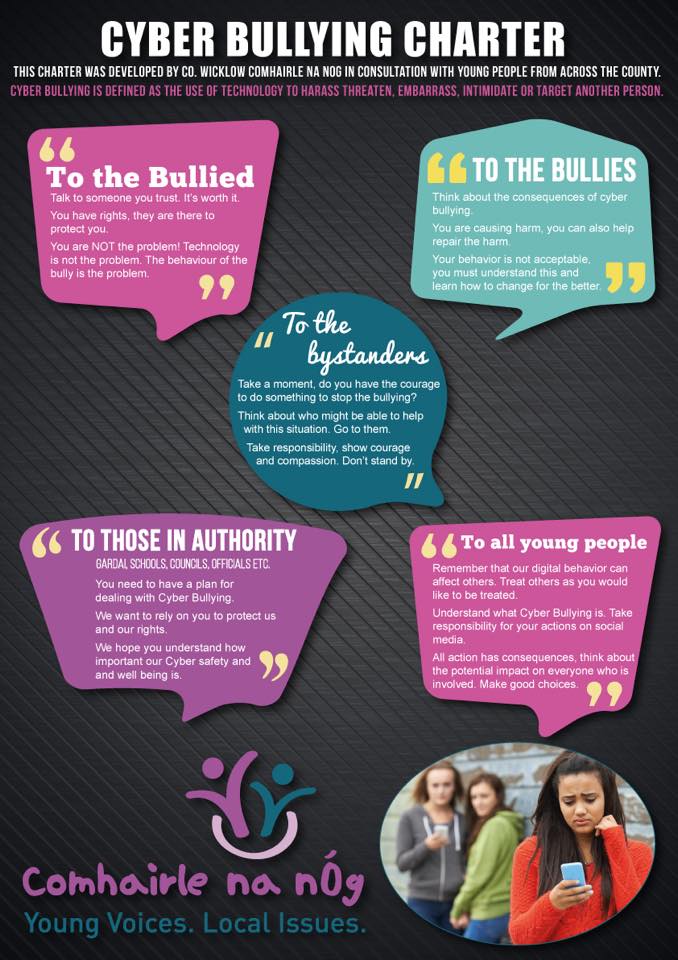Each year about this time sees Safer Internet Day. This year it falls on Tuesday 9th Feb. To mark the day we’ve tried to put together a collection of some of the better resources or links available to young people and parents & carers or anyone working with young people to use.

As the age at which children become active online drops, particularly on social media, (with or without parent’s knowledge and permission, and despite the various age restrictions that should be in place) much of the advice is around starting conversation between parents/carers and their children/young people. There are plenty of tips to be had around protecting your profiles on social media and apps, but also about how to report any inappropriate or unwanted contacts.
Research into online safety has identified 4 key areas to classify the risks faced by children and young people online and move beyond cyberbullying, grooming and pornography. The 4 C’s are
- Content – What are young people looking at, engaging with or exposed to?
- Contact – What sort of contacts are young people experiencing, or even targeted by
- Conduct – What sort of behaviours do young people participate in are victims of
- Contract – What sort of interactions between individuals or companies are young people accepting or engaged with?
The diagram below sums up each of these 4 areas with some subcategories explaining the types of risks inherent under each type of the ‘C’ risks’. You can read more about it https://core-evidence.eu/updating-the-4cs-of-online-risk/
But there’s help
The good news is there is plenty of information and safety tips to be found that can ease the mind and help with any conversations parents might want to have, or explain to young people about changing privacy settings, or generally keeping safe.
Equally important there are more tips now about conducting yourself online, being kind, and minding your well-being.
In County Wicklow
Locally in County Wicklow the county Children and Young People’s Services Committee (CYPSC) have a comprehensive guide, called A Parent’s Device Safety Guide – Available to download here
Also in Co Wicklow, The Comhairle na nÓg have a useful cyberbullying charter that you can download here.
Nationally
On a national level Webwise provide lots of information for parents, young people and people that work with young people including explainers, and resources you can download or order hard copy from them. https://www.webwise.ie/saferinternetday/
Cybersafe Ireland in conjunction with the Irish Examiner and Littlewoods Ireland have a great publication – Let’s Talk Online Safety that can be downloaded from the following link https://cybersafeireland.org/media/1504/lets-talk-online-safety-2020-booklet.pdf
It is also well worth checking out Spunout.ie for their Online Wellbeing pages
Further afield
In the UK there is a great resource/website, mainly aimed at school, called National Online Safety. They have a wide and comprehensive range of helpful posters that offer tips on being safe, or being kind online, as well as various explainers on everything from apps to gaming. You can access their free resources by registering with them as a school or person that works with young people, but we collected a number of their posters and have them available from the following link
Another good UK link with a whole heap of different types of guides info and resources is Internet Matters.
Check out this page for a range of useful leaflets and guides
There is a lot to be found on ThinkUKnow, which is the online safety website linked into the National Crime Agency and the Child Exploitation and Online Protection Command
And finally
A growing problem for many young and older people is online gambling. If someone has access to a credit or debit card, and can access a online gambling site, it can be very easy to lose sight of how quickly money gets lost and a problem develops.
There are some posters in the National Online Safety pages mentioned above, but also in Ireland https://www.problemgambling.ie/ is definitely a website to visit, for anyone worried about themselves, family members, or for professionals looking to support someone

















